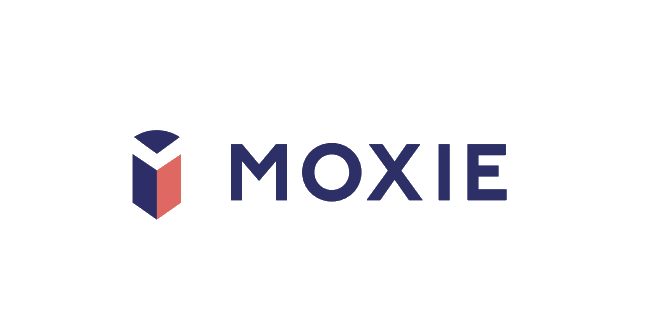Welcome to the Knowledge Hub!
We are delighted to be your go-to resource for insightful articles, expert tips, and valuable information spanning a wide range of academic subjects.
Clarifying AI Use in Academia: How to Create Use Cases that Call upon the Strengths of Multiple AI Resources
Much of the work we do as early adopters of AI in academia relates to helping to clarify how AI can be put to good use in this setting. This is why we repeatedly reiterate the importance of functional, critical, and rhetorical AI literacy. Here’s our model and definition of AI literacy categories.
AI-Powered Research and Planning for Dissertation/Thesis Introduction & Literature Review
Embarking on a dissertation or thesis can be overwhelming, particularly in the initial stages of research and planning. AI tools have emerged as powerful allies, transforming the way doctoral students approach these challenges.
Deciphering the Role of Generative AI in Education: A Framework for Value and Viability
The arrival of public access to Large Language Models (LLMs such as ChatGPT, Bard, Claude, etc.) has sparked an important conversation among educators: Where does Generative AI (GenAI) fit in the world of learning and teaching? Using Turovsky's ideas on how well AI can communicate, how accurate it is, and what's at risk, we've added a new layer to the discussion—complexity. This piece is crucial because it helps us understand how well GenAI can handle the sophisticated language tasks that are so vital in academia.
Employing Large Language Models to Bolster Qualitative Research
In a rapidly digitizing world, the integration of technology in research methodologies has become imperative. The emergence of large language models (LLMs) like ChatGPT presents opportunities and challenges in equal measure for qualitative researchers. But what do these advancements mean for the future of research? Our recent publication in The Qualitative Report touched upon the use of LLMs, such as ChatGPT, in developing and refining interview protocols. It's no secret that such models are transforming the way we approach data collection and analysis. But as researchers, we must ask: How can we harness the power of LLMs responsibly and ethically?
Leveraging ScholarAI and GPT-4 for Efficient Research Synthesis: A Case Study on Creating a Literature Matrix
This post demonstrates how to use ScholarAI alongside GPT-4 to create a literature matrix.
A Prompt-driven Approach to Academic Writing and Revising
The advent of prompt-driven approaches heralds a significant shift in the landscape of academic writing and revising. This post offers a step in the direction of using AI in a transformative way for academic writing support, and the Academic Insight Lab continues to pioneer in this exciting domain.
The Postdigital Era and Postplagiarism: Unpacking Complexities in Hybrid Human-AI Collaboration
In the postdigital era marked by interconnected human and AI technologies, The Academic Insight Lab leads the movement by embracing new possibilities for knowledge creation, promoting ethical collaboration with large language models, and redefining research, writing, and originality with an ethos of working smarter, not harder.
Acknowledging the Use of Generative AI in Academic Writing
As the use of generative artificial intelligence (AI) becomes increasingly common in academic writing, it's crucial to understand how to cite and acknowledge its role in your manuscript. Whether you're using ChatGPT or other AI models, following proper citation practices helps maintain academic integrity and gives credit where it's due. In this blog post, we'll explore the best practices for citing generative AI technology in your academic work. However, it’s important to point out that you are responsible for determining the requirements relevant to your context, so check with the journal if you are publishing and check with the professor if you’re a student.
The Role of Technology and AI in English for Research Publication: A Promising Frontier
Nobody speaks “Academic English” as a native language. As an applied linguist, I firmly believe that ALL academics have to take steps to constantly improve our fluency in this dialect. Embracing technology as a language learning tool holds immense potential for assisting researchers in their journey towards successful publication – especially the integration of artificial intelligence (AI). In this blog post, I will share some best practices and three specific takeaways to consider when utilizing technology and AI for improving your “Academic English.”
How to Use ChatPDF to Quickly Summarize and Extract Information from Research Articles
ChatPDF is a web-based platform that allows users to convert their PDF files into editable documents that can be easily modified, annotated, and shared with others. ChatPDF can be used to help students and researchers to make the most of their time by increasing their efficiency and productivity when working with PDF files. ChatPDF works by analyzing text in a PDF file and summarizing relevant information. Users can ask questions to quickly extract information.
How to Use ChatGPT for Academic Purposes
How to Use ChatGPT for Academic Purposes: Artificial intelligence (AI), specifically ChatGPT, has recently received a LOT of attention. I’ve personally found myself wondering, Has the time finally come? Are the robots taking over? Jokes aside, ChatGPT is a powerful language model developed by OpenAI and can be used in various contexts, including academic writing. ChatGPT is designed to understand and generate human-like text using probability algorithms without getting into too much technical detail.











